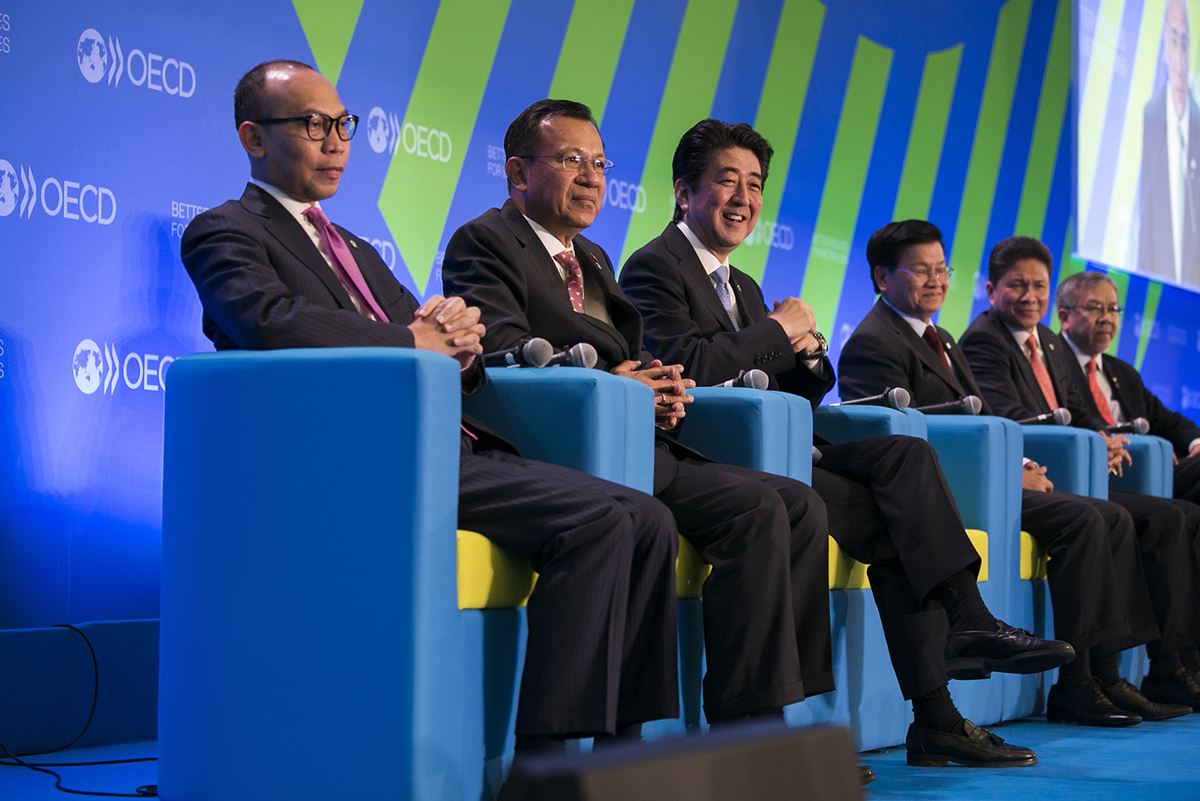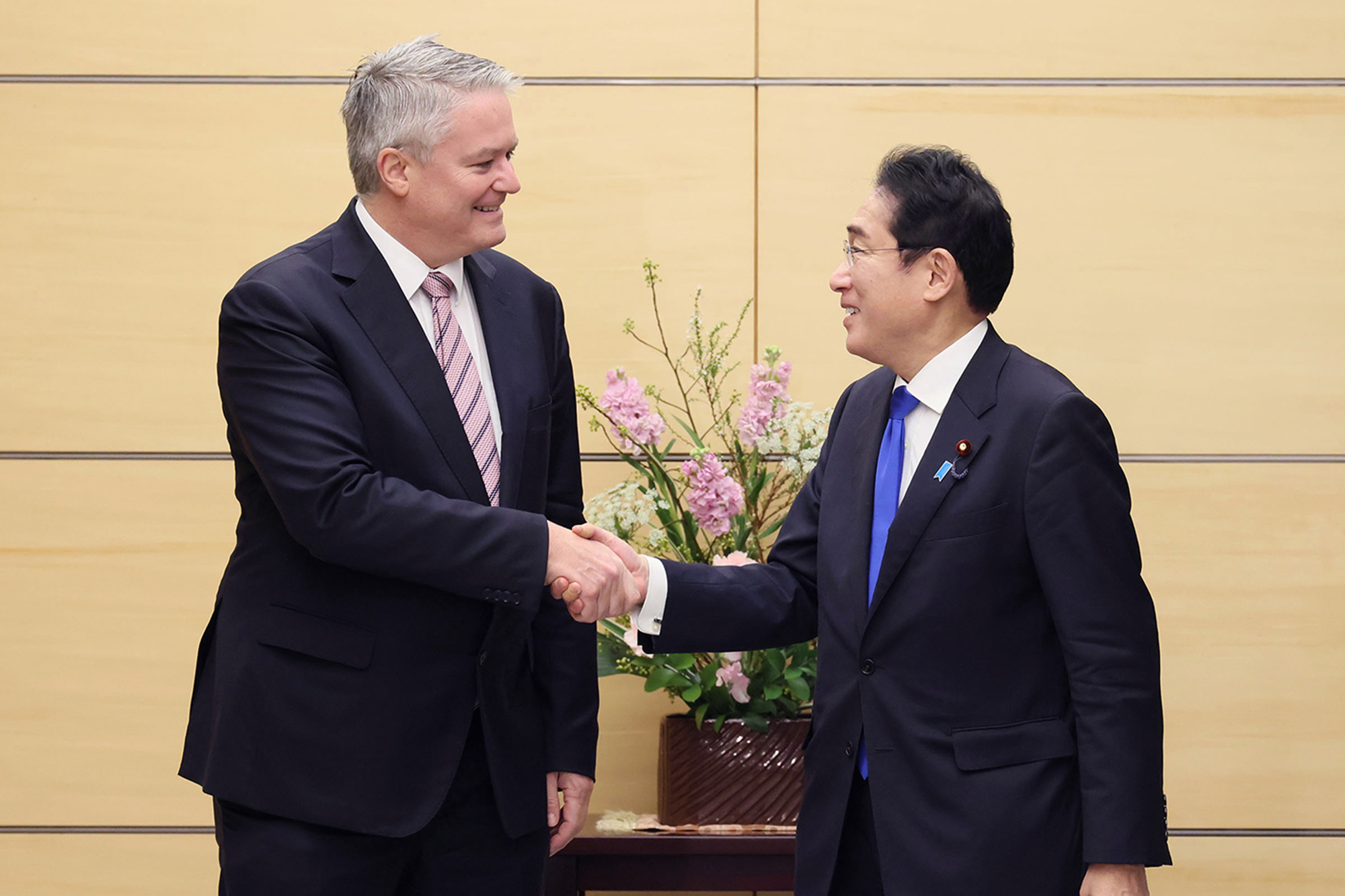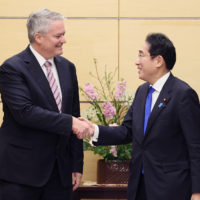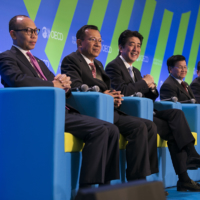This year we are marking the 60th anniversary of Japan’s accession to the OECD, a milestone that transformed the OECD into a truly global organization by adding its first member from Asia. It is a legacy we continue to build on today. Joining the OECD was also a milestone for Japan and part of a policy agenda that laid the foundations for Japan’s innovative and globally connected economy of today.

Since that time, the OECD has supported key economic reforms in Japan, for example the liberalization of capital flows, while in turn benefiting from Japan’s massive contributions to productive dialogue, to shared policy ambition and to the OECD’s global reach.
Japan’s economic journey over the last 60 years is a source of both inspiration and policy insights for countries around the world. This journey was enabled by economic policy tools that have stood the test of time and remain core to the OECD’s mission: fostering a supportive environment for private investment and innovation, building human capital, leveraging open global trade, making sound infrastructure investments and supporting a sound approach to development. The OECD’s comparative data analysis, best-practice policy advice and multilateral dialogue draw on Japan’s experiences in these areas while benefiting from Japan’s leadership as chair of key OECD committees covering corporate governance, digital policy, insurance and private pensions, and trade, among others.
Since becoming a member, Japan has been an advocate for broadening the global reach and impact of our work, particularly in the Indo-Pacific region, as a strategic priority for the organization, and for which Japan helped develop the new OECD Strategic Framework for the Indo-Pacific last year to further strengthen our engagement. In line with the framework’s implementation plan to be adopted at this year’s OECD Ministerial Council Meeting (MCM), this mutually beneficial cooperation will further enhance the organization’s role as an international hub for knowledge-sharing and standard-setting while strengthening the region’s voices in policy dialogue and decision-making.
Toward this, Japan was a major driving force behind establishing the OECD’s Southeast Asia Regional Programme, which is now celebrating its 10th anniversary. The program, launched in 2014 by then-Prime Minister Shinzo Abe, has successfully supported the reform agenda of countries across the region, including more effective anti-corruption frameworks, new competition laws and the establishment of new competition authorities, further support for innovation, and more effective public governance frameworks. These efforts to support policymakers in moving closer to OECD standards and instruments have made remarkable strides, leading to the historic decision to open accession discussions with Indonesia and to consider Thailand’s request to join.
Indeed, Japan, as chair of this year’s MCM under Prime Minister Fumio Kishida’s leadership, is set to continue its role in supporting OECD efforts to find multilateral solutions to the shared global challenges of our time. The meeting provides an opportunity to reflect on and shape the direction of our forward-looking agenda, to advance policy dialogue and to guide our global engagement. Together with the vice chairs, the Netherlands and Mexico, they formed the theme “Leading Global Discussions with Objective and Reliable Approaches Towards Sustainable and Inclusive Growth,” focused on the long-term structural transformations of our economies and societies.

A key part of this agenda will be working together to keep improving globalization so it can continue to deliver benefits for people around the world in an environmentally sustainable, fair and inclusive way. This will mean improving resilience and addressing risks in supply chains, building on the Japanese Group of Seven presidency’s work to address concentration in supply chains for green energy and electric vehicles without compromising globalization’s ability to drive growth and reduce poverty. The OECD will continue to contribute through our data and analysis on economic resilience, our support for WTO negotiations and our instruments to address the social and environmental impacts of trade.
Japan’s role as chair is also an opportunity to build on the country’s leadership on digital policy cooperation, to seize the opportunities of the digital transformation for our economies and societies while better managing some of the associated risks. The OECD was pleased to contribute to the Hiroshima Process, initiated under Japan’s G7 presidency, to develop guiding principles for organizations developing AI systems. We will draw on this successful initiative in the process of updating our pioneering AI principles — the first intergovernmental standard on AI — to reflect the latest developments. We also look forward to benefiting from Japan’s expertise and experience on improving digital privacy and consumer protection, expanding digital connectivity and incentivizing research and development investments.

The OECD is also well-placed to help countries work together to tackle climate change — to optimize the global effectiveness of emissions-reduction efforts in countries around the world while adapting to the effects of climate change. Japan has been an active contributor to the OECD’s Inclusive Forum on Carbon Mitigation Approaches (IFCMA), with a dedicated ministerial dialogue on this flagship initiative planned as a side event at the MCM to help optimize emissions-reduction efforts around the world through better data and information-sharing, evidence-based mutual learning and inclusive multilateral dialogue. The OECD will continue to advance the technical work of the forum and broaden its membership in support of the work of the U.N. Framework on Climate Change and implementation of the Paris Agreement.
In parallel, this year’s MCM will advance new work on other core dimensions of environmental policy, namely protecting biodiversity and tackling pollution. We will also develop a new strategy for supporting sustainable development, which will include support for climate adaptation given the vulnerability of many emerging and developing economies to the consequences of climate change and extreme weather events.
Finally, Japan’s policy experiences will continue to guide OECD work on identifying effective policy approaches to respond to the economic and social impacts of population aging. This includes ensuring employability across working lives, avoiding labor and skill shortages and boosting productivity and growth. Japan’s impressive level of educational performance, above the OECD average for mathematics, reading and science as measured in our latest Programme for International Student Assessment (PISA) results, will be a key asset in equipping students to navigate these evolving labor markets and lifelong learning.

At the OECD, we are committed to supporting policymakers around the world in developing sound and well-coordinated policy responses to each of the structural shifts in front of us, grounded in our shared values of democracy, the protection of human rights, the rule of law and market-based economic principles. We look forward to continuing to work together to support better policies for better lives.








